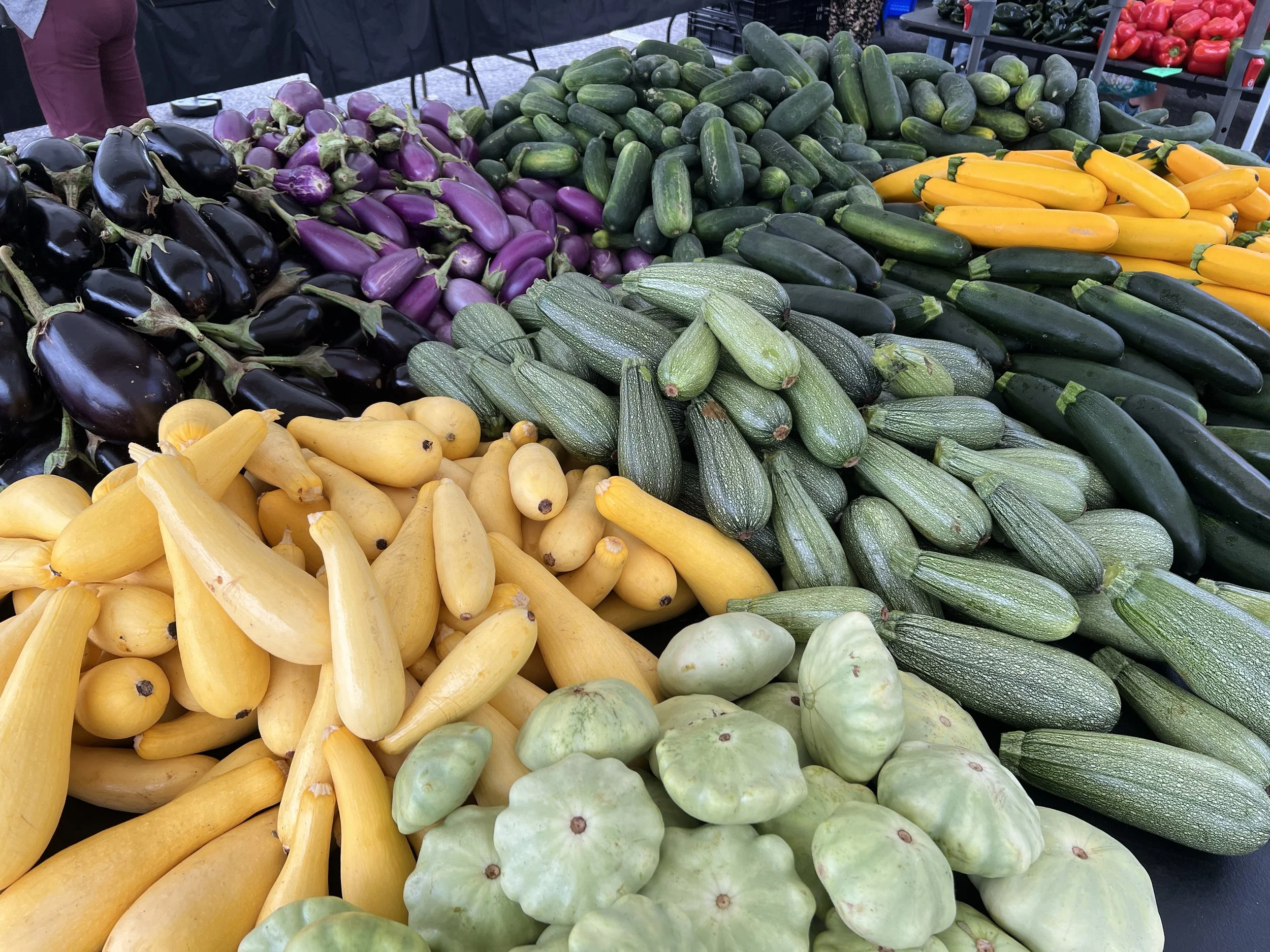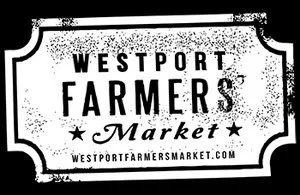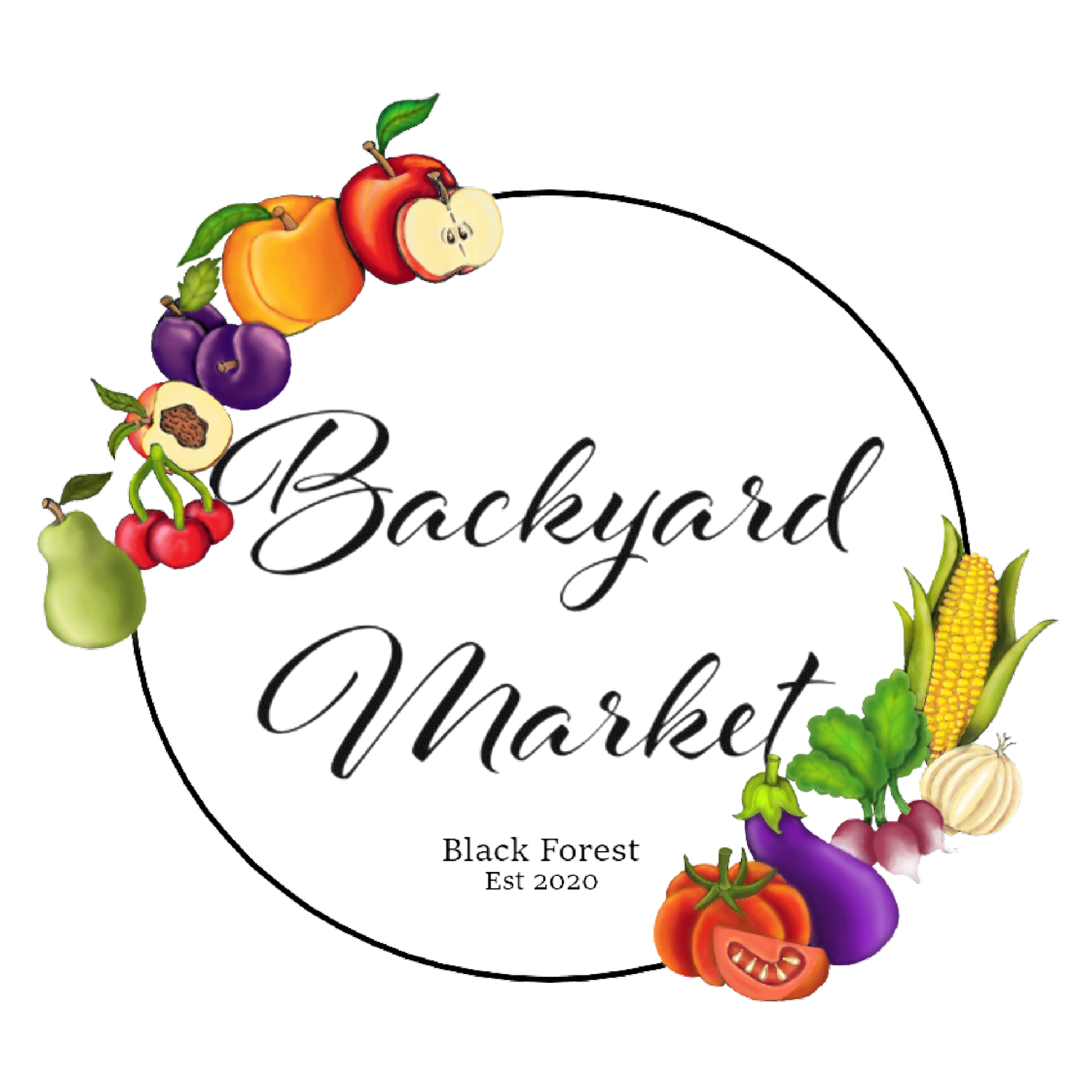Success Stories
What makes a plastic-free market successful? We researched markets across the country to find out.
Success Story #1
Westport Farmers Market
Westport, CT
Executive Director Lori Cochran-Dougall of the Westport Farmers Market (WFM) in Connecticut is excited for the 2024 season as they implement stricter guidelines on going plastic-free. According to their website, WFM is “98% plastic free at the market” as of August, 2024.
In order to encourage vendors to participate, the market has provided resources and suggested alternatives to help vendors switch to plastic-free options. During this transition, management has addressed concerns head-on and appealed to the vendors' conscience–asking them to consider the environmental impact of their products and whether it was worth contributing to plastic waste. Thus far, the stricter policies have been well-received. Some vendors have even developed innovative solutions such as selling products in mason jars and offering discounts to customers who return with the jar for refills, which has helped encourage repeat business. Additionally, vendors may partner up to lower the costs of buying reusable alternatives in bulk.
WFM’s influence on local government policy is yet another measure of success in generating larger sustainable change. The township of Westport recently conducted a “Skip the Stuff” campaign in conjunction with the single-use plastics ordinance, which went into effect January 1, 2024. The bill prohibits establishments from offering complimentary plastic utensils unless requested by the customer and is reflective of the market’s broader impact on local environmental policy and culture.
“People do not come to markets because of the plastic bags and they won’t stop coming if they aren’t there.”
— Daniel McChesney-Young, Farmers Market Program Director, The Ecology Center
Success Story #2
The Ecology Center
Farmers Market
Berkeley, CA
The Ecology Center in Berkley, CA has exhibited long-term success with their markets labeled plastic-free since 2009. When the policy was first introduced, vendors were required to charge for paper and compostable bags—a strategy summarized by the market as “ban the worst (plastics) and charge for the rest (paper and compostable).”
Now, plastic packaging is completely banned from Ecology Center markets, and vendors will be fined if they do not adhere to policies set in place to hold them accountable. The Ecology Center’s zero-waste message is standardized across all of their Berkeley, CA markets–simplifying the process for vendors who participate in several locations.
The Ecology Center also received a grant from the local government to support the transition away from plastic; the funds allowed them to purchase 125,000 compostable bags and sell them to vendors at half the normal cost. This financial support was crucial in helping vendors make the switch without significant financial strain. To maintain the integrity of the zero-waste policy, The Ecology Center encourages vendors to collaborate and share resources, such as placing bulk orders of compostable/alternative packaging. Additionally, volunteers from zero-waste community groups play a vital role in monitoring the markets and educating customers about proper waste disposal.
The impact of the zero-waste policy at The Ecology Center markets has been overwhelmingly positive. In a survey conducted after the policy's implementation, 88% of customers and 81% of vendors reported a reduction in bag use, with the majority of feedback being positive. As Farmers Market Program Director Daniel McChesney-Young expertly states: “People do not come to markets because of the plastic bags and they won’t stop coming if they aren’t there.”
Success Story #3
Wicker Park Farmers Market
Chicago, IL
The Wicker Park Farmers Market in Chicago has successfully implemented a plastic-free policy, becoming the first market in the city to do so. This transition, while initially challenging, has now become a defining feature of the market, establishing it as a leader in sustainability.
The market’s partnership with WasteNot Compost offers on-site recycling and composting with educational signage to guide customers and vendors. This partnership has also eased the transition to entirely compostable packaging throughout the market, a key feature of the market’s low waste policy. WasteNot Compost has provided vendors with compostable packaging if needed and guidance on best practices for compostability.
Wicker Park’s plastic-free standard, which was initially met with some resistance, has now become non-negotiable. Vendors quickly realized the long-term benefits, both financially and environmentally, of eliminating plastic packaging. Today, this policy is widely accepted and celebrated, becoming a hallmark of the market. The market also encourages customers to bring their own containers and bags to further promote a culture of sustainability among all attendees.
Now several years into this initiative, the Wicker Park Farmers Market is entirely free of plastic and Expanded Polystyrene foam (EPS, “Styrofoam”). Reflecting on the market’s journey, Market Manager Charlotte Sechrist notes that "we have had this policy running for years and years at this point, and it has become an unspoken standard and something that makes our market special." The initial costs and challenges have given way to a thriving, sustainable market that stands as a brilliant success story of transitioning to plastic-free.
“Ban the worst [plastics] and charge for the rest [paper and compostable].”
— The Ecology Center
Success Story #4
The Backyard Markets
Colorado Springs, CO
The Backyard Markets in Colorado Springs are on a sustainability journey with a goal of becoming zero-waste in 2024. 2023 marked the second year into this transition, with several initiatives already in place to reduce the market’s environmental footprint and promote a green market culture. The market's rules emphasize the importance of sustainability by encouraging customers to bring their own shopping bags, containers, cups, and even straws. The mantra, “We are a GREEN market and love all things reusable,” reflects the market’s dedication to reducing single-use items and rejecting throw-away culture. By fostering a community around reuse and circularity, the Backyard Markets are leading by example in their commitment to environmental consciousness.
As part of their efforts to reach zero-waste, the Backyard Markets have phased out several single-use plastic items and refuse to sell plastic sample cups, packaging, wrap, grocery bags, straws, and Styrofoam. To replace these, the market provides compostable alternatives, making it easier for vendors and customers to make sustainable choices. The Markets have also installed water refill stations to encourage shoppers to bring their own reusable bottles.
Additionally, Backyard Markets recently launched a composting program aimed at diverting food waste to complement their existing recycling stations. Comprehensive compost and recycling guidelines are available on the market’s website, ensuring that everyone is informed about proper waste disposal practices.
With these sustainable practices in place, the Backyard Markets are on track to achieve their zero-waste goal by the end of 2024. Their ongoing efforts not only reduce waste but also set a powerful example for other markets to follow, demonstrating that with determination and community support, a greener future is within reach.














